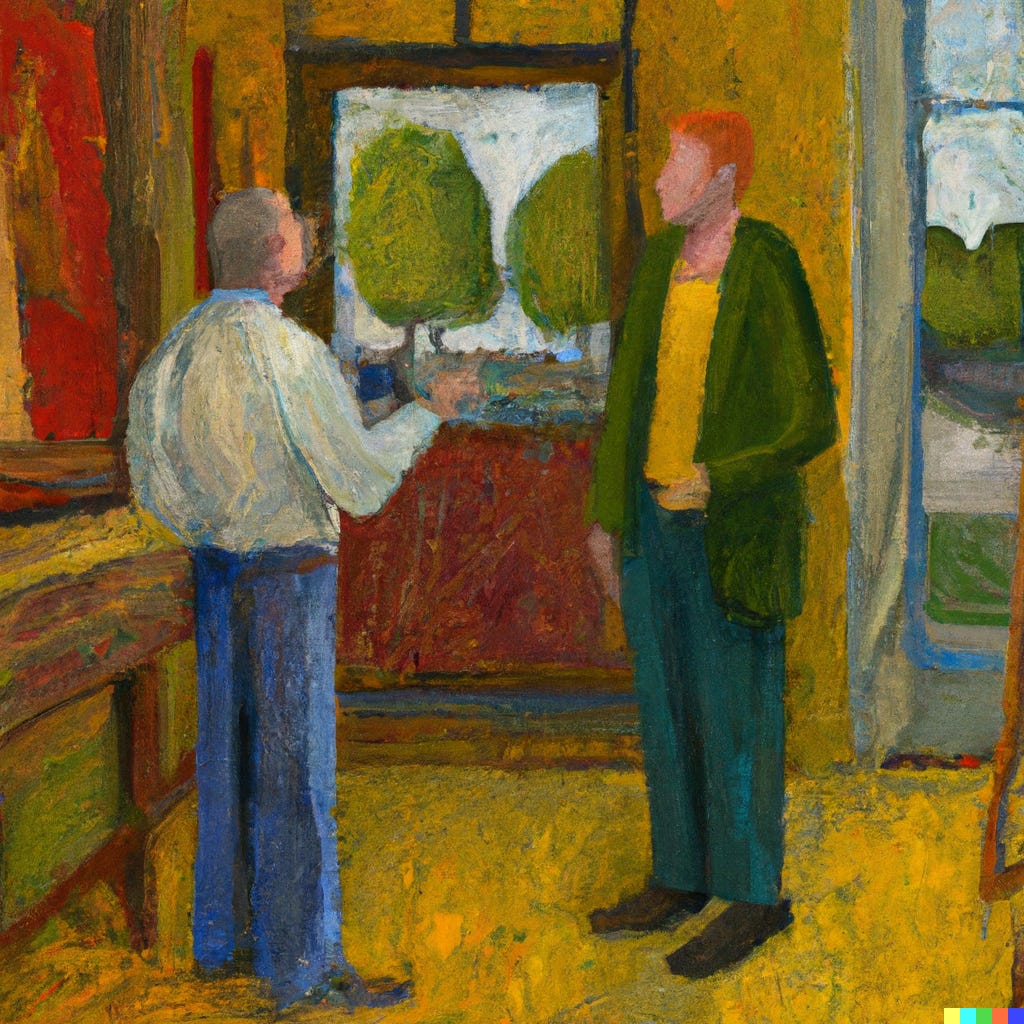The Six Steps to Closing a Sale - Part V
Handling Objections
Today’s Newsletter is brought to you by Musero, a free, sane replacement for Instagram.
Free, Easy & Sane Photo Sharing For Artists & Photographers.
Chronological Feed. No Crazy Algorithm. No TikTok Style Reels getting priority.
Musero: Share what you make.
The Six Steps to Closing a Sale - Part V

This article series is a continuation of a theme that we talk about a lot. In fact, you might call it a key principle and it is this: artists need to think like a business. Artists are not only in the business of making art, but also in the business of selling their art. Many have mastered the creation process, perfected their technique, found their niche, and developed their style, but when it comes to running a business, particularly the business of sales, there are a lot of new skills to master.
Putting on the sales hat requires that you get comfortable engaging in one or more difficult conversations with potential clients. These conversations revolve around budgets, finances, payments and the actual process of closing a sale. We have put together this article series to help artists during these interactions. By following the six steps to closing the sale, artists will be equipped to close more sales confidently.
The six steps outlined below are well researched and are utilized by designers, videographers, and others in creative fields. This series will cover the following topics: We will begin with covering prospecting and qualifying potential clients. We will then talk about the approach, the presentation, overcoming objections, and the close. Then we’ll wrap this up with a little bit of encouragement.
Here are the topics we plan to cover in this series:
Previous Articles in Series:
1. Prospecting
2. Qualifying
3. The Approach
4. Presentation
Today’s article:
5. Objections
Planned for the next few weeks:
6. The Close
7. Recap
On to the update!
STEP 5: Handling Objections
Objections can be verbal or nonverbal and both types often happen in the same conversation. An objection is actually a good thing because it means your prospect is interested enough to respond. If they were not interested, they would just decline. Sometimes, people just aren't sure what they want to do, and making that commitment to purchase, especially a big purchase, can be scary. So an objection is often just a natural, almost visceral, response that a person has where they emotionally tap the breaks, simply because they need some time to think about it.


